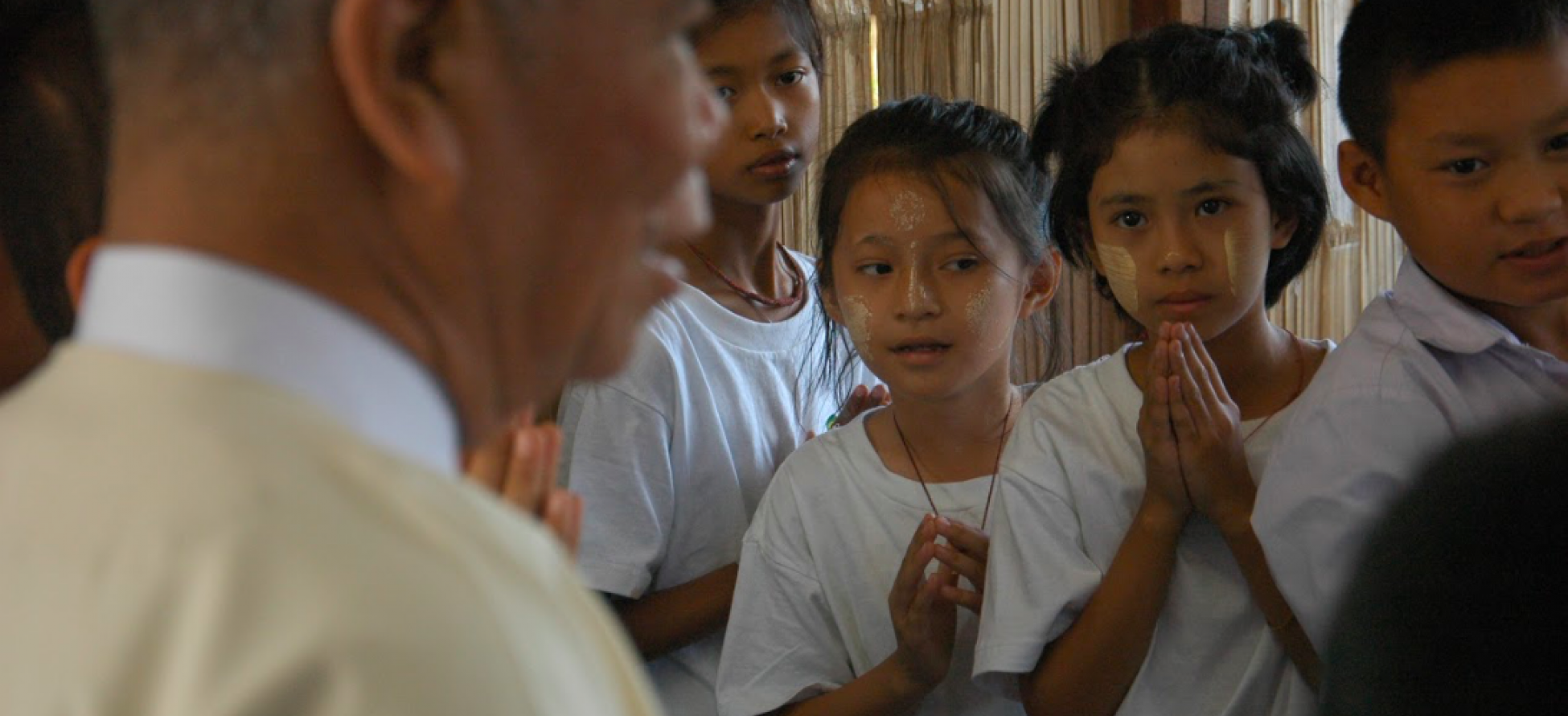
Thailand has historically been the largest recipient of Burmese migrants in a mix of economic and conflict-driven migration patterns. In 2017, an estimated 1.9 million to 3 million Burmese were believed to live and work in Thailand, a large proportion of whom were unregistered.
In January 2017, in an attempt to identify, register, and track Burmese migrant workers in Thailand, the Myanmar government announced the “Certificate of Identity (CI)” procedure. The CI documents replaced the previous documents, released by the Royal Thai Government and known as pink cards, and allowed Burmese migrants to register in Thailand, apply for a visa and, eventually, obtain a work permit with expiring date scheduled for March 2018.
In June and July 2017, Help without Frontiers provided migrant teachers in Migrant Learning Centres with the support they needed for the completion of the CI and work permit procedures. The working relationship thereby established defined Help without Frontiers as the employer and the teachers as employees. In accordance with Thai labour law, both employers and employees are bound to contribute to the Social Security Fund in equal proportions (through a 5% contribution calculated on the monthly salary). As a result, with a work permit the employee works legally in the country and is entitled, as any other Thai national, to benefits in case of sickness, injury, maternity, invalidity, death, old-age, unemployment, and other circumstances covered through complementary voluntary schemes.
In January 2018, the government announced a significant increase in the expenses related to the CI and the work permit procedures, to be completed within the end of March 2018. The expenses currently amount to 6,200฿ (around 200$) thus imposing an intolerable burden on migrant teachers, earning an average monthly salary of 5,000฿ (around 160$). Moreover, since June 2017, a Royal Decree enacted by the government substantially raised the fees and penalties for illegal employment and work substantially to a maximum of 800,000฿ (over 26,000$) fee for the employer and of 100,000฿ (over 3,300$) for the foreign employee.
Help without Frontiers is covering the CI and work permit expenses in order to allow to migrant teachers to regularise their position as migrant workers in Thailand for at least two years. In order to cover such expenses, Help without Frontiers has borrowed the money to migrant teachers and established a repayment scheme. According to such two-year repayment scheme, teachers will see their monthly salary deducted by over 10%, meaning that they will be left, on average, with around 4,500 ฿ (around 150$) per month.
Help without Frontiers is committed to increasing teachers' retention so as to ensure Burmese migrant children and youth will be able to attend school in next years. Furthermore, through paying the teachers’ Social Security Fund, Help without Frontiers is willing to improve their security at work and in life. As a result, despite their structural condition of marginalisation and vulnerability, Burmese migrant teachers will enjoy safe and fair working conditions and will be entitled to the same social security benefits as Thai nationals and other foreign workers.
Unfortunately, with the current repayment scheme, teachers are forced to survive on a small salary and their future is at risk.
You can help us in making sure their students, over 3,300 Burmese migrant children, will receive an education.
You can make a difference.
Even the smallest donation is precious to a child's brighter future.



